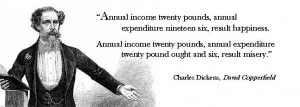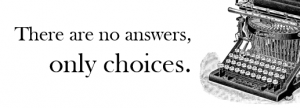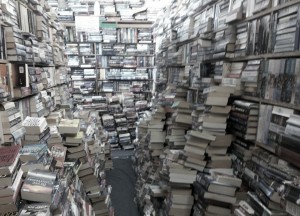Well, recycle it if possible, there’s a lot of precious and toxic metals, minerals and plastics in one of those babies. But yes, otherwise I am suggesting a Luddite type orgy of technological destruction.
OK, well maybe not destruction, that’s a bit wasteful. And a bit rich coming from a blog.
The thing is, if you’re a quest for freedom, and who isn’t? Then we need to talk about fire. Not the fire in the blood we felt last week, but the fire we stole from the gods, the fire in the forge, which changed the world forever and gave us the misplaced idea that we’re our own gods now.
Fire, you may have heard, is a good servant and a bad master. Have you ever tried to apply that to your own life? No, I don’t mean checking the oven is turned off, I mean checking that you are in control of the technology you’ve let into your life.
Fire’s birth of tools and technology
The fire of the hearth and the forge gave birth to two major shifts for human beings. The first, immediate one, was that it liberated people from the subservience of being limited to just finding and killing food and eating it raw. Cooking made so many more foods palatable and so many more calories and ecological niches available to people.
Secondly, that same campfire hardened spear tips further to bring down more game more readily. This led slowly but inexorably to other tools, and metalworking. Have you ever heard of the phases of human ancient history? Commonly they are the Stone Age, the Bronze Age, and the Iron Age. Getting a feel yet for how important it was to be able to work metal? You need fire for that, a forge, and knowledge and resources.
It is no surprise that nearly every culture has an origin story of stealing fire from the gods. When the human mind was joined with a fire in the forge, we birthed technology.
At the beginning of the Bronze Age there were travelling shamen with secret knowledge. They knew about the secrets of the earth that might yield valuable and precious knives. They were powerful people in the societies they graced – each single object they made was a king-maker. With fire, we had the ability and presumption to create outside of ourselves, according to our will. (Just as an interesting aside, for those who don’t recognise it, that is basically the common definition of magic.)
For a long time there was a very direct connection between the digging and toiling for the heavy gifts from the deep or wrinkled places in the earth’s skin that could then be smelted and forged, cast and smithed into objects vast in number. And over more time, a village wasn’t whole until they had a blacksmith of their own. Then we built factories and it all leapt forward again, in number, in scale, in complexity. Then the factories moved from steam power to electricity, and it all leapt forward again. The next step was the factories and machines being designed by our most favoured technology – the computer – and it began to leap upon leap.
![]()
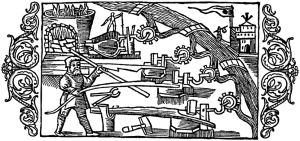 From those simpler early times of guilds and crafts when the people who could produce technology directly were respected and lauded we shifted to the integrated skills becoming common jobs and tasks. Over the last two centuries, as the sophistication of our technologies increased, so our personal ability to connect to their creation decrease. So our personal ease and expectation of continuing technological improvements increase. We have now completely lost our connection to the dirt and the sweat and the wonder and beautiful magic of it all, yet consider access to technology a ‘right’. Technology, as often as not, now means a sealed tablet or box that we feed with power and when it dies (and they *always* die), we throw it away and buy a newer, better one.
From those simpler early times of guilds and crafts when the people who could produce technology directly were respected and lauded we shifted to the integrated skills becoming common jobs and tasks. Over the last two centuries, as the sophistication of our technologies increased, so our personal ability to connect to their creation decrease. So our personal ease and expectation of continuing technological improvements increase. We have now completely lost our connection to the dirt and the sweat and the wonder and beautiful magic of it all, yet consider access to technology a ‘right’. Technology, as often as not, now means a sealed tablet or box that we feed with power and when it dies (and they *always* die), we throw it away and buy a newer, better one.
What an amazing time to be alive.
What is the cost of these marvels? For now, let’s put aside the horrific pollution and the indentured slave type working conditions of the factories we’ve hidden a world away from retail eyes and ponder simply the difference between what we personally are capable of creating and controlling and what our gadgets and tech goodies are built to achieve.
It is quite a gap.
Each iteration of development and power in the technology has taken it further and further from our own personal grasp or capacity to replicate. You’ve probably heard of Arthur C Clarke’s three ‘laws of prediction’ (from 1962 no less!). The third law is “Any sufficiently advanced technology is indistinguishable from magic.”
Are you really the master of all these amazing devices in your life? Do you know how to use them, how to command them, and to turn them off? Have you become overrun by them and their generations of decrepit and half-useful elders? Maybe you know some friends like I do – a couple with two drawers full of old phones and mismatched chargers, more tablets than hands, more TVs than ears, set-top boxes, gaming consoles, dozens of terabits in hard drives and usbs, and more than I could bear to catalogue. This beautiful couple are so constantly tired and so rarely get a chance to relax. They work full time and raise kids, and try and volunteer, and all of this with the pressure of being constantly online personally and professionally.
That’s the way life is now. We’re so lucky to live with all this technology aren’t we?! But you know, a beautiful, high-tech, evolving and sophisticated network of independent structures and super-capable tools that can automatically connect and integrate across systems and platforms is still a prison if you’re on the wrong side of it. Or Skynet about to become self-aware. Either way, this is the call for you to put your tech to a test. Is it serving you?
Are you still the master?
We rise up again when we accept responsibility for fire – when we let it subjugate us or dictate terms we have become confused by the glamour of our own achievements.
Expunge all the technology that is draining your life or putting you to work. Set limits around how much access it has to you. Don’t be smothered by things that should be tools. Take back your humanity by controlling the fires in your life. Backburn your technology!

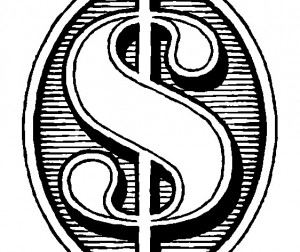 In my past, I’ve been through the experience of some
In my past, I’ve been through the experience of some